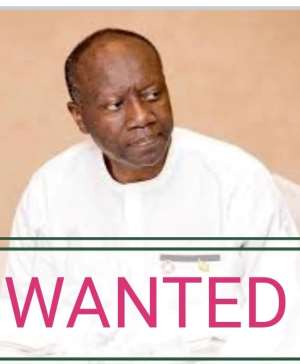
The ongoing criminal probe into former Finance Minister Ken Ofori-Atta by the Office of the Special Prosecutor (OSP) has reignited discussions about potential conflicts of interest in public office. Central to these concerns is the role of Data Bank, a financial institution co-founded by Mr. Ofori-Atta, which has reportedly served as a transaction advisor for several government projects during his tenure. This situation raises critical questions about governance, transparency, and accountability in Ghana’s public sector.
The Core of the Conflict
At the heart of the matter is the perceived overlap between Mr. Ofori-Atta’s public responsibilities as Finance Minister and the involvement of Data Bank in advising on government transactions. Critics argue that this duality creates a potential conflict of interest, where private financial interests could unduly influence public decision-making. While Mr. Ofori-Atta has consistently denied any wrongdoing, the optics of such an arrangement have fueled public skepticism and demands for greater scrutiny.
As Chinua Achebe wisely said, “A man who makes trouble for others is also making trouble for himself.” This proverb underscores the idea that actions, whether intentional or not, often have far-reaching consequences. In this case, the perceived conflict of interest has not only cast a shadow over Mr. Ofori-Atta’s tenure but also raised broader concerns about governance in Ghana.
Key Areas of Concern
1. Transparency in Government Contracts
– The selection of Data Bank as a transaction advisor for government projects has raised questions about the procurement process. Was the selection competitive and transparent, or did Mr. Ofori-Atta’s association with the firm give it an undue advantage?
As Fusaini Isah’s Dogomba Wise Saying goes, “When the handshake crosses the elbow, it is no longer a greeting.” This aptly describes the situation where professional boundaries may have been overstepped, leading to public mistrust.
2. Accountability in Financial Decisions
– As Finance Minister, Mr. Ofori-Atta oversaw critical financial decisions, including debt restructuring and project financing. The involvement of a firm with which he has ties could create the perception of bias, even if none exists.
The Bible reminds us in Proverbs 11:1, “The Lord detests dishonest scales, but accurate weights find favor with him.” This verse highlights the importance of fairness and integrity in all dealings, particularly those involving public resources.
3. Public Trust and Governance
– The controversy has eroded public trust in the government’s ability to manage resources impartially. For many Ghanaians, the case symbolizes broader concerns about corruption and the misuse of public office for private gain.
Nelson Mandela once said, “Thus shall we live, because we will have created a society which recognizes that all people are born equal, with each entitled in equal measure to life, liberty, prosperity, human rights, and good governance.” This quote serves as a reminder of the ideals that governance should strive to uphold.
The Legal and Ethical Dimensions
The law is clear on the need for public officials to avoid conflicts of interest. Ghana’s Constitution and anti-corruption laws mandate that public servants act in the best interest of the nation, free from personal or financial entanglements. If proven, any breach of these principles could have serious legal consequences for Mr. Ofori-Atta and others involved.
However, beyond the legal implications, the case also raises ethical questions about the standards of conduct expected from public officials. Even the perception of impropriety can undermine confidence in governance and deter foreign investment.
As Chinua Achebe observed, “We cannot trample upon the humanity of others without devaluing our own.” This sentiment resonates deeply in the context of public service, where the actions of leaders have a profound impact on the lives of citizens.
The Way Forward
1. Thorough Investigation
– The OSP must conduct a comprehensive and impartial investigation to determine whether any laws were broken. This includes examining the procurement processes and financial transactions involving Data Bank.
As Fusaini Isah’s Dogomba Wise Saying advises, “You have to chase the hyena before you blame the goat.” This emphasizes the need to address the root causes of issues rather than merely focusing on symptoms.
2. Strengthening Oversight Mechanisms
– Ghana must enhance its institutional frameworks to prevent conflicts of interest. This includes stricter disclosure requirements for public officials and more robust oversight of government contracts.
Dwight D. Eisenhower once said, “A nation’s hope of lasting peace cannot be firmly based upon any race in armaments but rather upon just relations and honest understanding with all other nations.” This quote underscores the importance of fairness and transparency in building trust.
3. Restoring Public Trust
– Transparency and accountability are key to rebuilding public confidence. The government must demonstrate its commitment to justice by allowing the law to take its course, free from political interference.
The Bible reminds us in Micah 6:8, “He has shown you, O mortal, what is good. And what does the Lord require of you? To act justly and to love mercy and to walk humbly with your God.” This verse calls for humility and justice in leadership.
Conclusion
The case of Ken Ofori-Atta and Data Bank is a litmus test for Ghana’s commitment to good governance and the rule of law. As Ghanaians demand justice, it is imperative that the investigation is conducted with integrity and that any wrongdoing is addressed decisively. Only then can the nation move forward, ensuring that public office remains a place of service, not self-interest.
As Chinua Achebe wisely noted, “Until the lions have their own historians, the history of the hunt will always glorify the hunter.” This serves as a reminder that accountability and transparency are essential for ensuring that the truth prevails.
Retired Senior Citizen
Teshie-Nungua


